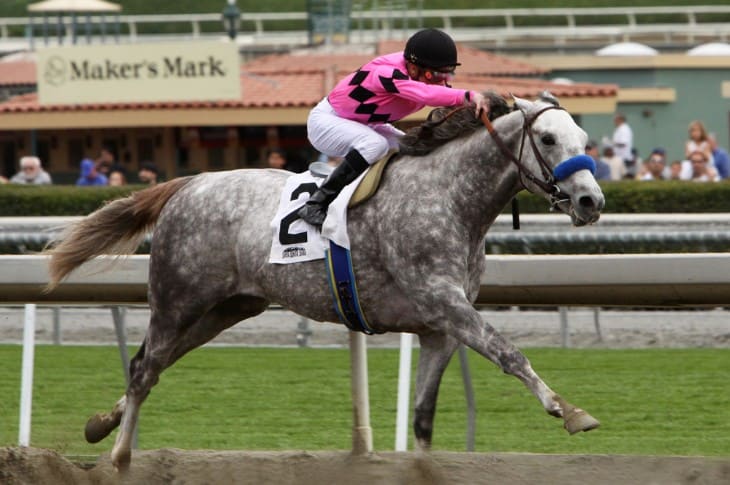This prestigious event traces its roots back to the early 19th century. The first recorded flat race meeting in Cheltenham took place in 1815 on Nottingham Hill, with the first official race, the Gold Cup, introduced much later in 1819. These early races were pivotal in establishing Cheltenham as a hub for horse racing enthusiasts.
The significance of Cheltenham in the world of horse racing rapidly grew. By the 1830s, the races had become a national attraction. The shift from flat racing to jump racing occurred during this period, paving the way for the Cheltenham Festival as we know it today. The establishment of the National Hunt Meeting, which later evolved into the Cheltenham Festival, marked a new chapter. It was not just about the races; it became a gathering that attracted a diverse range of people, from local farmers to the aristocracy.
Cheltenham's race courses have undergone significant transformations over the years, evolving to meet the changing demands of the sport and its spectators. The most notable courses at Cheltenham include:
- The Old Course: Serving as the main stage for races in the earlier part of the Cheltenham Festival. It is known for its unique configuration and challenging hurdles, testing the agility and speed of the competing horses.
- The New Course: Introduced to provide a fresh challenge to horses and jockeys, this course features different contours and a longer run-in for steeplechases. It hosts the latter part of the festival, including the prestigious Gold Cup.
- The Cross Country Course: A relatively newer addition, this course offers a varied and challenging landscape. It includes different types of fences and obstacles, providing a unique spectacle for the audience and a novel challenge for participants.
These courses reflect the evolution of the sport and the festival itself. Each course at Cheltenham is designed to test different aspects of horse racing, from speed and endurance to agility and jumping ability. This diversity ensures that Cheltenham remains at the forefront of horse racing, offering a comprehensive and varied experience for jockeys, horses, and spectators alike.
Significant Horses in Cheltenham History
Cheltenham has been graced by many legendary horses, each leaving an indelible mark on its history. One cannot discuss the Cheltenham Records without mentioning Arkle, a name synonymous with greatness in Cheltenham's lore. Arkle's phenomenal strength and speed saw him win the Gold Cup three consecutive times from 1964 to 1966, setting a standard for excellence. His legacy is so profound that the Timeform organisation rated him as the greatest steeplechaser ever, a testament to his prowess on the Cheltenham tracks.
Another horse that commands respect in Cheltenham's annals is Golden Miller. Remarkably, Golden Miller won the Gold Cup five times consecutively from 1932 to 1936, a record that remains unbeaten. His achievements extended beyond Cheltenham, with a victory in the Grand National in 1934, making him the first horse to win both the Gold Cup and the Grand National in the same year. These horses are not just winners; they are icons that have shaped the history and character of Cheltenham racing.
Legendary Jockeys of Cheltenham Races
The jockeys of Cheltenham are as integral to its history as the horses themselves. These athletes have demonstrated exceptional skill and bravery, contributing significantly to the Cheltenham Records. Amongst the most revered is Ruby Walsh, a name that resonates with dominance at Cheltenham. Walsh holds the record for the most Cheltenham Festival wins by a jockey, a feat that cements his status as a racing legend. His partnership with horses like Kauto Star and Big Buck's led to numerous memorable victories, showcasing his extraordinary talent and determination.
Equally noteworthy is A.P. McCoy, whose career spanned over two decades, earning him a reputation as one of the greatest jockeys in the history of horse racing. McCoy's Cheltenham successes are numerous, including winning the Gold Cup and the Champion Hurdle. His relentless pursuit of victory and resilience in the face of adversity made him a favourite among racing fans. The legacies of these jockeys go beyond their victories; they symbolise the spirit and passion that define the essence of Cheltenham racing.

Cheltenham's Most Memorable Races
Cheltenham has been the stage for many unforgettable races, each contributing to the rich tapestry of its history. Among these, the 1973 Gold Cup stands out, where the mighty Pendil, a favourite, was narrowly defeated by The Dikler in an exhilarating finish. This race is etched in the annals of Cheltenham, not just for its nail-biting conclusion but also for the display of sheer determination and skill by the competing horses and jockeys. It's races like these that have cemented the Cheltenham Festival's reputation as a pinnacle of horse racing.
Another race that is often spoken of with reverence is the 1989 Gold Cup, where Desert Orchid, known for his prowess on flatter courses, displayed extraordinary versatility and resilience to win on Cheltenham's challenging terrain. This victory against the odds was a significant addition to the Cheltenham Records, showcasing the unpredictable and thrilling nature of horse racing at the festival. Such races are not merely competitions; they are dramatic narratives that capture the essence of the sport and its timeless appeal.
Training Techniques for Cheltenham Champions
Training horses for the Cheltenham Festival is a meticulous and sophisticated process, demanding a perfect blend of traditional methods and modern science. Trainers focus on developing a horse's stamina, speed, and jumping ability, tailored to Cheltenham's unique courses. One key aspect is conditioning the horse to handle Cheltenham's undulating terrain and challenging fences. This involves a regime of hill work, gallops, and schooling over hurdles and fences, ensuring the horse is well-prepared for the physical demands of the races.
Nutrition and mental preparation are equally crucial. A carefully balanced diet, tailored to each horse's individual needs, ensures optimal health and energy levels. Mental conditioning, often overlooked, is vital for a horse's performance. Trainers use various techniques to build a horse's confidence and focus, crucial for navigating the high-pressure environment of Cheltenham. These comprehensive training strategies contribute significantly to the impressive Cheltenham Records achieved by many champions.

Cheltenham Festival: A Cultural Phenomenon
The Cheltenham Festival is much more than a series of horse races; it is a cultural phenomenon that captures the spirit of horse racing and British tradition. This event, held annually in March, draws spectators from all over the world, contributing significantly to the local economy and the sport's popularity. Key elements that make the Cheltenham Festival a cultural landmark include:
- Fashion and Socialising: The festival is not only about horse racing; it's also a social event where fashion plays a significant role. 'Ladies Day' at Cheltenham is famous for its display of stylish and sometimes extravagant outfits, adding glamour to the event.
- Economic Impact: The festival boosts the local economy, with hotels, restaurants, and businesses flourishing during the event. It's a vital source of income for the region, illustrating the festival's significance beyond the racetrack.
- Global Recognition: Cheltenham Festival is renowned worldwide, attracting international visitors and media coverage. It's a showcase of British horse racing excellence, placing Cheltenham on the global stage.
- Tradition and Heritage: The festival celebrates the rich heritage of horse racing, with historical races and tributes to past champions. It's a yearly reminder of the sport's enduring legacy and its place in British culture.
These elements combine to make the Cheltenham Festival a unique event, transcending the sport of horse racing to become a cultural spectacle. The festival's ability to attract a wide audience, from avid racegoers to those new to the sport, is a testament to its appeal and its contribution to the Cheltenham Records and traditions.
The economic aspects of horse racing at Cheltenham are both vast and varied, contributing significantly to the sport and the local economy. The festival generates considerable revenue, not just through ticket sales but also through various other channels. Key economic contributors include:
- Betting: Betting is integral to horse racing, and Cheltenham is no exception. Millions of pounds are wagered each year, with bookmakers and online betting platforms seeing a surge in activity during the festival.
- Hospitality and Tourism: The influx of visitors to Cheltenham during the festival boosts the local hospitality industry. Hotels, restaurants, and local attractions benefit from the increased patronage.
- Employment: The festival creates numerous temporary and permanent job opportunities, from event management and catering to security and maintenance services.
- Horse Trading: The sale of horses, both at auctions and privately, is a significant economic activity associated with the festival. The prestige of having a Cheltenham winner can greatly increase a horse's value.
This economic impact extends beyond the immediate festival period, influencing the wider horse racing industry and the local community. The Cheltenham Festival's ability to generate economic activity is a crucial aspect of its ongoing success and contributes to its place in the Cheltenham Records.
Conclusion
In conclusion, Cheltenham's role in the world of horse racing is both historic and dynamic. The festival's evolution from its humble beginnings to a globally recognised event is a testament to its enduring appeal and the dedication of those involved. From the legendary horses and jockeys who have set remarkable Cheltenham Records to the technological and economic developments that have shaped the festival, Cheltenham continues to be a beacon in the world of horse racing.







